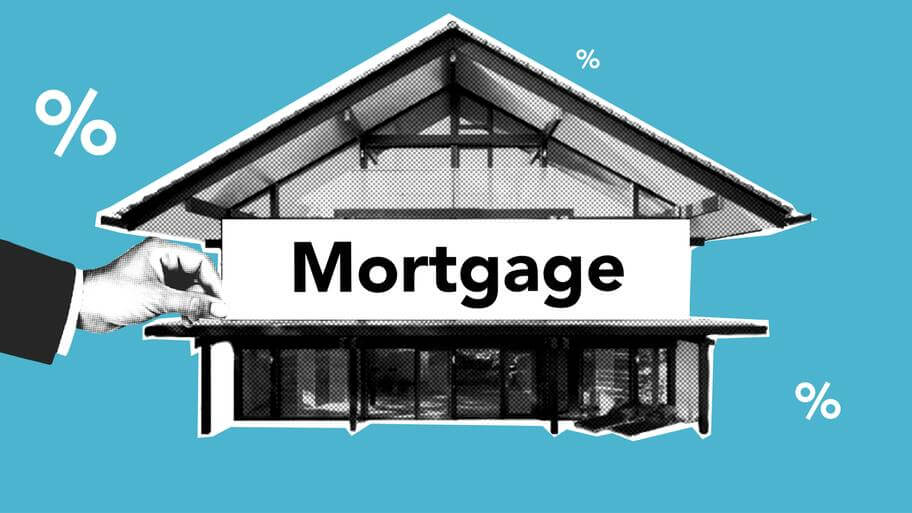Approximately once every three months, we get a letter from our mortgage company. This is to get us to make bi-weekly mortgage payments rather than monthly ones. Selling yourself is easy. Every week, we’d send in what would have been half of our regular mortgage payment. In other words, instead of 24 payments each year, you’d be paying 26. (12 months x 2). This would result in an annual increase of one payment. But it begs the question: why? We might buy our property sooner if we made larger payments on our mortgage. It would help us save money on interest in the long run.
Getting my mortgage paid off faster and saving money on interest is an appealing prospect. If you are paid biweekly, this strategy will serve you well. It’s a breeze to create a budget. But are these deals as good as they seem to be? If you’re considering switching to a biweekly mortgage payment schedule, here’s what you need to know.
Don’t Fork Over the Cash
The small print of many of these deals reveals a massive caveat. However, some lenders will do this for you for several hundred dollars. That, too, must be paid in full from the outset. This made some sense before the advent of the internet when setting up recurring payments was simple. With today’s technology, though, there’s no need to pay a bank to perform something you can do in a few minutes.
In the same way, if you pay your mortgage using direct online payments, you may set up a biweekly payment schedule at no cost to you. Add an extra amount to your monthly payment equal to 1/12 of your regular payment. You may expect to see it at your principal’s office soon. It just takes a few minutes to set up, and then you’ll be making an extra payment every year for the duration of your mortgage term.
Also, keep this in mind. There should be no issues if you want to make your mortgage payments monthly from the start. However, midstream adjustments may be made.
Keep an Eye Out for Flaws
This is a situation when caution is warranted. Any payments made more than the due amount may be applied to the following installment. In this case, you are not reducing your debt but rather prepaying your next installment. The variation is slight, but it has the undesirable effect of causing you to pay interest despite your best efforts to avoid doing so.
Because of this, you should talk to your bank before proceeding. You may need to tell certain institutions that you want your payment applied directly to the principal rather than the monthly payment. In this situation, you should just establish two reoccurring payments. Two withdrawals, the larger one covering the standard mortgage payment and the smaller one for the supplemental 1/12. You should specify that the second installment is applied to the principal.
Or, you may divide the mortgage payment in half and pay it when paid every two weeks. You will continue to get the supplemental payment even after a year has passed. This is because there are months when you get three paychecks, resulting in a payment that is 1.5 times the usual amount being sent. What this amounts to is having your mortgage payment due every two weeks.
Stay Out of Confinement
If you choose a biweekly payment plan, you’ll have to make a payment every other week. Suppose you are making monthly payments on your own. In that case, you can quit whenever you see fit, even if your financial situation changes. If you commit to a biweekly payment schedule with your lender, you’re stuck with it. It may not be an issue if your pay cycle is every two weeks. However, you may need more leeway if you have financial troubles in a given month.
But there’s a flip side: locking in a low-interest rate as you grow equity might be smart. A mortgage payment automatically deducted from your checking account each month leaves you with no discretionary spending funds. Indeed, you can no longer afford as much. Use the money you previously spent on luxuries to increase your home’s equity. You will become wealthy far more quickly.
Here are a Few Personal Instances
To illustrate this point, I’ll tell you a story about two neighbors, one of whom is the shopkeeper who told me their tale. See, back in the day, they managed a thriving retail operation. They had little trouble accumulating wealth. For a long time, they didn’t have to worry about anything. However, most of their neighbors seemed to have far less spare money since they worked 9 to 5. However, this fact did not deter the couple’s ambition to advance economically. They pooled their resources and invested in a strip mall in the middle of nowhere (at the time). They continued to live below the poverty line for many years since their enormous mortgage consumed almost all of their disposable income.
Those years of hardship probably lasted quite a while. Still, the time and effort spent accumulating such equity bore fruit. The 9-to-5ers have retired from their jobs after a few decades. They possess a fully paid-off, multi-tenant shopping center in a prime location, and their residence is estimated to be worth over $20 million. The shopkeeper (who relayed this tale to me) is not now homeless. He’s well into his 70s, yet he’s still keeping the shop open to make ends meet. In reality, the shopkeeper now pays his former next-door neighbor’s rent every month.
If you play your cards well, forcing yourself to develop equity may be beneficial.
Savings Are Reduced Due to Low-Interest Rates
When mortgage interest rates are high, biweekly payments are a great option. For the sake of argument, let’s say that you’ve just gotten a 30-year fixed mortgage at a rate of 7%. If you start making biweekly payments on your mortgage right away, you may expect to finish paying it off in under 24 years. Every $100,000 in principle would result in an interest savings of almost $33,500. That’s a fantastic bargain, for sure.
However, if the identical loan had an interest rate of 3% (closer to what most homeowners are already paying), paying it off with biweekly mortgage payments would take more than 26 years. Also, the careful homeowner would only save around $7.139 in interest on a $100,000 loan.
While making payments every two weeks is helpful, its impact is magnified when interest rates are high.
Concluding Remarks
Biweekly mortgage payments will help you reach your goal of owning a property free and clear much sooner. Remember that it is best to handle this independently rather than commit to a bank’s payment terms. There is no cost associated with this option.
When looking for a first mortgage (or refinance an existing one), weighing all your financing choices is essential. You may make payments weekly, every other week, or on the 1st and 15th of each month (biweekly). Some loan companies even let you pay more on the principal with each payment, a feature known as an “accelerated” payment plan.
It’s possible you’d benefit from having your mortgage payments spread over an extended period. On the other hand, maybe you’re more concerned about accumulating equity rapidly. Consider how much you can afford each month in light of these various payment options.
Featured Image: Unsplash @ Monstera






